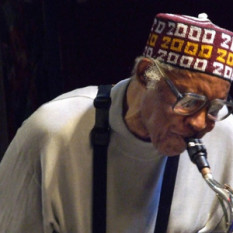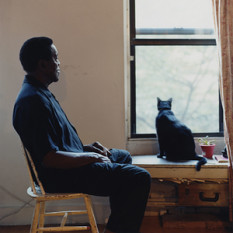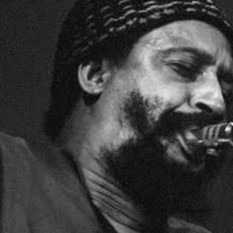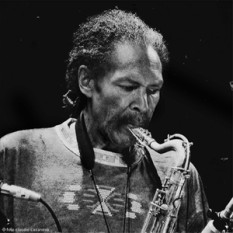The San Francisco-based Rova Saxophone Quartet was the alternative, experimental alter-ego of the more famous World Saxophone Quartet. Formed in 1977 by Jon Raskin (1954), Larry Ochs (1949), Andrew Voigt and Bruce Ackley, on respectively baritone, tenor, alto and soprano saxophone it straddled the border between free jazz and classical music of the 20th century. Raskin had already founded several multimedia projects and worked with composer John Adams. Their first concert became also their first album, Cinema Rovate' (august 1978), highlighted by Raskin's chaotic and cacophonous 21-minute Ride Upon the Belly of the Waters After The Bay (december 1978) with Italian percussionist Andrea Centazzo, the noise strategy of the group was perfected on The Removal of Secrecy (february 1979), particularly Ochs' 19-minute That's How Strong. There was method in their madness, but it was not easily detected within the dense structures of their scores. After Daredevils (february 1979) with guitarist Henry Kaiser, and the transitional This This This This (august 1979), with Raskin's eleven-minute Flamingo Horizons, Invisible Frames (october 1981) boasted another peak of their expressionist art, Voigt's 22-minute Narrow Are the Vessels. Ochs' 19-minute Paint Another Take of the Shootpop, off As Was (april 1981), was dedicated to both classical composer Olivier Messiaen and soul vocalist Otis Redding. Rova's style was becoming more accessible while still being abstract, absurd and atonal. After the live double-LP Saxophone Diplomacy (june 1983), with a 24-minute Detente or Detroit, and the Steve Lacy tribute of Favorite Street (november 1983), the Rova Saxophone Quartet sculpted the titanic jams of Crowd (june 1985), such as the 19-minute The Crowd, Ochs' 29-minute Knife In the Times and Raskin's 16-minute Terrains. After the relatively straightforward Beat Kennel (april 1987), and the live The Aggregate (july 1988) with fifth saxophonist Anthony Braxton, Voigt left Rova and was replaced by Steve Adams for Long on Logic (january 1990).
In 1986, Ochs had formed the Group Room, a trio of saxophone, piano and electronics. In 1990 he and keyboardist Wayne Horvitz formed the International Creative Music Orchestra.
After Electric Rags II (september 1989) with electronic musician Alvin Curran, Rova's recordings became more predictable and focused on live performances: This Time We Are Both (november 1989), with a 26-minute The Unquestioned Answer, Morphological Echo (december 1989), From the Bureau of Both (september 1992), with the 18-minute The Floater.
They also recorded Terry Riley's Chanting the Light of Foresight (july 1993).
Pipe Dreams (january 1994) was credited to Figure 8: the Rova Saxophone Quartet plus saxophonists Tim Berne, Vinny Golia, Glenn Spearman and Dave Barrett.
Ochs also composed chamber music for ensemble: The Secret Magritte (1993), Pleistocene (1997) and Certain Space (2001). Och's sax-bass-drums trio What We Live, formed in 1994, recorded Never Was (1996), Quintet for a Day (1998), Trumpets (2000), etc. The trio Larry Ochs Sax & Drumming Core (with two drummers), formed in 2000, debuted with The Neon Truth (2002). .
All albums
You can find information through the best music search engine - Muzlan.top 😊All materials on request "Rova Saxophone Quartet" are available on page Rova Saxophone Quartet
Yes of course. You can listen tracks on the page Rova Saxophone Quartet
Yes of course. You can download tracks on the page Rova Saxophone Quartet
This page is found by queries: Rova Saxophone Quartet free download, Rova Saxophone Quartet song download, Rova Saxophone Quartet track minus, Rova Saxophone Quartet flac, Rova Saxophone Quartet mp3 download




